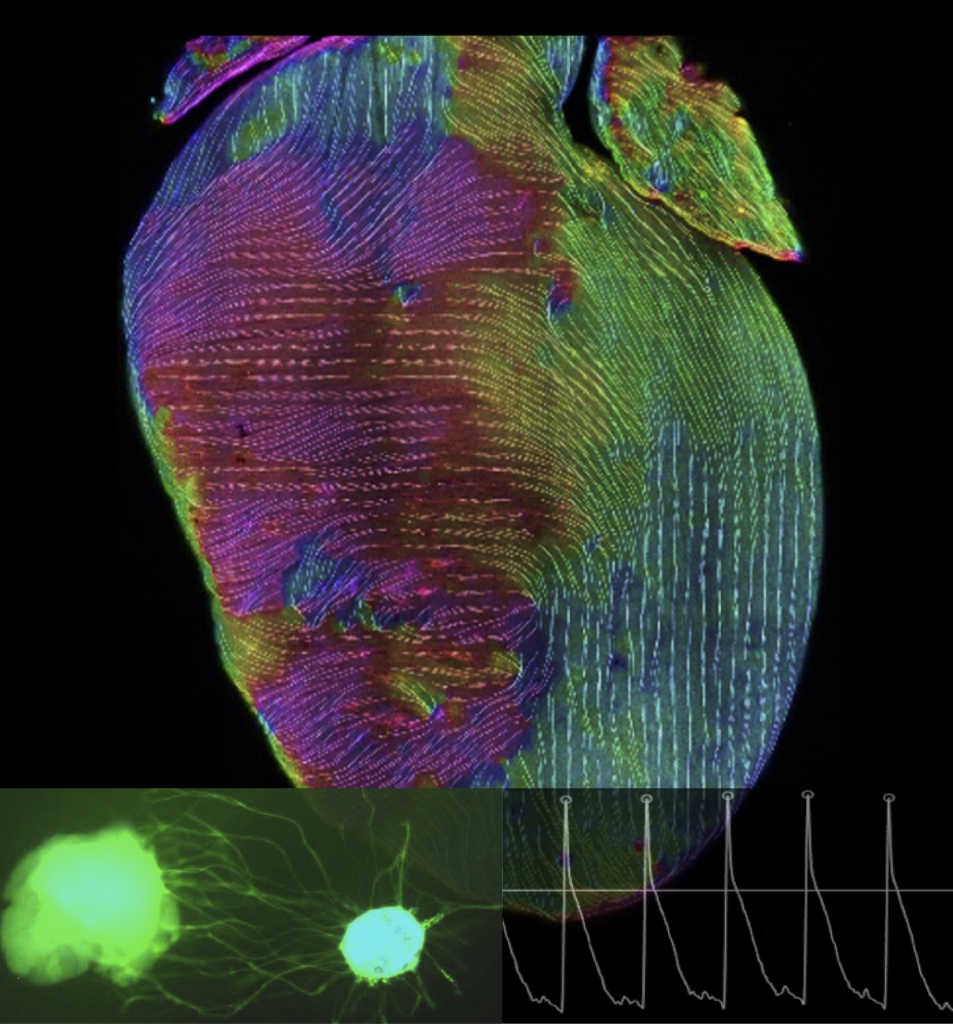An Interdisciplinary Approach to Studying the Nerve-Heart Interface



The Cardiac Sympathetic Nervous System
Sudden arrhythmic death is a leading cause of mortality worldwide. Every aspect of cardiac function, including susceptibility to arrhythmias, is regulated by the autonomic nervous system. Our laboratory integrates cutting-edge electrophysiology and imaging techniques from neuroscience to study the sympathetic nervous system of the heart and how it controls susceptibility to lethal arrhythmias.
Intramyocardial Nerve Patterning in Arrhythmogenic Heart Disease
An injury to the heart is also an injury to its nerves, and common heart diseases such as myocardial infarction result in altered neuronal patterning of the heart muscle, which drives arrhythmias. Currently, there is limited understanding of the axon guidance cues that determine post-infarct nerve patterning. There are no anti-arrhythmic therapies that target cardiac neuronal patterning, and we seek to fill this gap.


Neuronal Control of Arrhythmogenesis
Each muscle cell of the heart is controlled by a neuronal synapse. We seek to understand how the cellular and molecular mechanisms at this synapse regulate myocardial electrophysiology. Our ultimate goal is to leverage this understanding to modulate the neural-myocardial interface and develop targeted therapeutics for heart rhythm disorders.